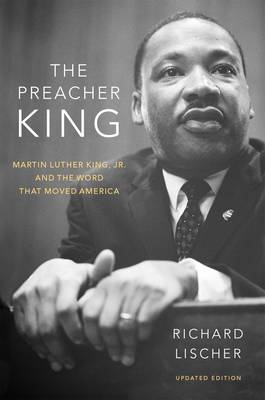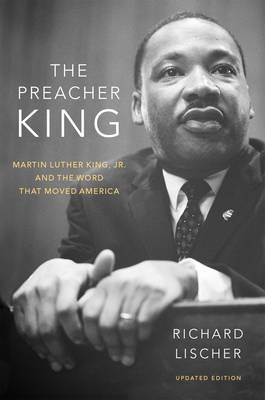
- Retrait gratuit dans votre magasin Club
- 7.000.000 titres dans notre catalogue
- Payer en toute sécurité
- Toujours un magasin près de chez vous
- Retrait gratuit dans votre magasin Club
- 7.000.0000 titres dans notre catalogue
- Payer en toute sécurité
- Toujours un magasin près de chez vous
The Preacher King
Martin Luther King, Jr. and the Word That Moved America
Richard Lischer
Livre broché | Anglais
37,45 €
+ 74 points
Format
Description
The Preacher King investigates Martin Luther King Jr.'s religious development from a precocious "preacher's kid" in segregated Atlanta to the most influential America preacher and orator of the twentieth century. To give the most accurate and intimate portrait possible, Richard Lischer draws almost exclusively on King's unpublished sermons and speeches, as well as tape recordings, personal interviews, and even police surveillance reports. By returning to the raw sources, Lischer recaptures King's truest preaching voice and, consequently, something of the real King himself. He shows how as the son, grandson, and great-grandson of preachers, King early on absorbed the poetic cadences, traditions, and power of the pulpit, more profoundly influenced by his fellow African-American preachers than by Gandhi and the classical philosophers. Lischer also reveals a later phase of King's development that few of his biographers or critics have addressed: the prophetic rage with which he condemned American religious and political hypocrisy. During the last three years of his life, Lischer shows, King accused his country of genocide, warned of long hot summers in the ghettos, and called for a radical redistribution of wealth. 25 years after its initial publication, The Preacher King remains a critical study that captures the crucial aspect of Martin Luther King Jr.'s identity. Human, complex, and passionate, King was the consummate American preacher who never quit trying to reshape the moral and political character of the nation.
Spécifications
Parties prenantes
- Auteur(s) :
- Editeur:
Contenu
- Nombre de pages :
- 344
- Langue:
- Anglais
Caractéristiques
- EAN:
- 9780190065126
- Date de parution :
- 29-01-20
- Format:
- Livre broché
- Format numérique:
- Trade paperback (VS)
- Dimensions :
- 155 mm x 231 mm
- Poids :
- 476 g

Les avis
Nous publions uniquement les avis qui respectent les conditions requises. Consultez nos conditions pour les avis.






